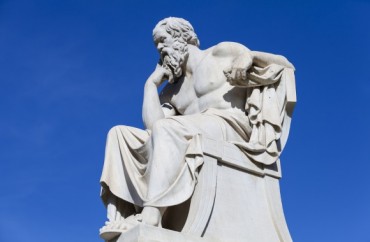
‘School of General Education’ model legislation aims to reform higher ed nationwide
Although an attempt to pass a bill in Utah to create a School of General Education recently fell short, those who argue it’s a real solution to leftist bias and curriculum inefficiencies facing higher education say it was just the first battle in a much longer war.
“Other states are definitely considering legislation inspired by the model General Education Act,” said Stanley Kurtz of the Ethics and Public Policy Center, who helped formulate the model legislation behind the bill.
“It’s too early to go into that in detail,” he told The College Fix in a recent email interview, “but I think it’s likely that at least one or two other states in addition to Utah will introduce legislation inspired by the GEA in 2025.”
In Utah, state Sen. John Johnson’s bill sought to create just such a School of General Education at the University of Utah.
As originally conceived it would establish a core curriculum on western and world civilizations, economics, science, and U.S. history, government and literature — and universities may not add to it, The College Fix previously reported.
In effect, it would reduce enrollment in bizarre and esoteric humanities courses — often known for advancing diversity equity and inclusion and critical race theory concepts — as students are required to take the new core curriculum classes.
The act did not pass muster on its first legislative foray in Utah, failing to pass out of committee in February.
“The bill, which critics said was an attack on academic freedom, failed to pass the legislature after push back — including from the Utah System of Higher Education,” Fox News in Salt Lake City reported.
Sen. Johnson initially agreed to an interview with The College Fix but has been unresponsive in recent weeks.
Kurtz quoted Sen. Johnson in a piece for the National Review as saying: “It took four or five decades for forces hostile to the great tradition of Western education to effect their takeover of the university curriculum, so undoing their conquest is not a matter of one bill or one session.”
The idea behind the school is to institute a “common civic education that includes examination of fundamental moral and philosophical questions via a study of the history and the greatest books of Western civilization, and the world,” according to its developers.
The new core curriculum would teach students “what they share in common as Americans — America’s ideals, institutions, faiths and civilization were born in the West, so students must know the history and the culture of the West to know the very language of America,” said the model legislation’s co-creator David Randall, director of research at the National Association of Scholars, in a fall webinar.
The model legislation was co-authored by Randall, Kurtz, and fellow prominent higher education reformer Jenna Robinson, president of the North-Carolina based James G. Martin Center for Academic Renewal.
The center continues to work to tout the proposal to state legislators and others seeking to “make university life freer, fairer, more rigorous, and more transparent,” center officials stated in an email last week to supporters.
Kurtz told The Fix these types of reforms don’t happen overnight.
“I do expect that Utah will see the GEA introduced again in 2025,” he said via email. “Keep in mind that it took Utah two years to pass a bill abolishing the DEI bureaucracy. I think a similar pattern is likely to play out with a Utah GEA.”
Kurtz also explained to The Fix that he envisions private universities gradually following the lead of public universities and legislation.
“Private universities could certainly develop programs inspired by the model GEA. This may not happen right away, but if several states pass laws along the lines of the GEA private colleges may follow suit down the road,” he said.
Critics of the bill included those who would be responsible for implementing it, the University of Utah’s president, and the Commissioner of Higher Education.
Kurtz reported for National Review that critics were mainly concerned about bureaucratic issues and practical obstacles, but did not dispute the legislature’s authority to make such curriculum changes, stating Republicans who voted against the bill told him “they’d be pleased to consider changing their votes next session.”
MORE: University of Utah will close women’s, LGBT centers to comply with DEI ban
MORE: ‘Ambitious’ higher ed reform proposal would fire substantial number of professors
IMAGE: Shutterstock
Like The College Fix on Facebook / Follow us on Twitter






Please join the conversation about our stories on Facebook, Twitter, Instagram, Reddit, MeWe, Rumble, Gab, Minds and Gettr.